THE PORTLAND HOSPITAL
ANGLO-BOER WAR
A MOBILE FIELD HOSPITAL SENT-OUT BY VOLUNTARY SUBSCRIPTION
TO ALLEVIATE THE SUFFERING OF WOUNDED AND SICK DURING
THE ANGLO-BOER WAR 11 OCTOBER 1899 - 30 MAY 1902.
after its principal benefactor, the Sixth Duke of Portland.
>*< >*< >*< >*< >*< >*< >*< >*< >*< >*< >*< >*< >*< >*< >*<
Report of the Committee of the Portland Hospital – 1901
George W. Randall Research and Photographic Archive
* >< * * >< * * >< * * >< * * > + < * * >< * * >< * * >< * * >< *
>< * >< * >< * ><>< * >< * >< * ><>< * >< * >< * ><>< * >< * >< * ><>< * >< * >< * ><>< * >< * >< * ><
“The strength of the Portland Hospital was forty-one, including sisters and servants.”
“The strength of the Portland Hospital was forty-one, including sisters and servants.”
-------------------------------------------------------
MEDICAL AND SURGICAL STAFF
OF THE PORTLAND HOSPITAL
Anthony Bowlby, F.R.C.S., Senior Surgeon
Howard Tooth, M.D., F.R.C.P. : Cuthbert Wallace, M.B., B.S., F.R.C.S.
Joseph Calverley, M.B., B.S., M.R.C.S.
Surgeon-Colonel Kilkelly, Grenadier Guards, Principal Medical Officer and in Military Charge.
> * < > * < > * < * > * < > * < > * < + > * < > * < > * < * > * < > * < > * <
(Carston, Godfray or Harland - ?)
+ < * > + < * >+ < * > + < * >+ < * > + < * >+ < * > + < * >+ < * > + < * >+
In addition there were two Enteric Wards, (Numbers 16 and 18), wholly devoted
to this little understood at the time and frequently fatal infectious disease caused
by the
bacterium, Salmonella enterica serovar Typhi.
Leaving Cape Town on 8 April 1900 the Portland Hospital relocated from Rondebosch to Bloemfontein by train where it arrived on 14 April 1900.
>*< >*< >*<>*< >*< >*<>*< >*< >*<>*< >*< >*<>*< >*< >*<
THE PORTLAND HOSPITAL ADMITTED 1,009 OFFICERS AND MEN.
OF THESE 37 DIED * 159 REURNED TO DUTY
303 WERE DISCHARGED TO CONVALESCENT CAMPS OR HOSPITALS
98 WENT TO ENGLAND
AND 412 WERE TRANSFERRED TO OTHER HOSPITALS AT THE BASE.
OF THE 303 SURGICAL CASES ADMITTED TO PORTLAND HOSPITAL
THREE DIED - ONE OF THEM AN OFFICER WHO HAD BEEN SHOT THROUGH THE LUNG AND SPINAL CORD AND PARALYSED FROM THE NECK DOWNWARDS.
ANOTHER WAS A MAN SHOT THROUGH THE BRAIN,
THE THIRD A PATIENT WHO DIED FROM GANGRENE.
ALL OTHER PATIENTS RECOVERED AND NONE REQUIRED AMPUTATION.
MOST PATIENTS WERE TREATED IN THE OPEN AIR,
TENT WERE NEVER CROWDED, NEARLY ALL WOUNDS HEALED WITHOUT SUPPURATION AND THERE WERE NO CASES OF ERYSIPELAS
OR OTHER FORMS OF SEPTIC POISONING.
>*< >*< >*<>*< >*< >*<>*< >*< >*<>*< >*< >*<>*< >*< >*<
(An unframed, unglazed print found damaged in a loft at Kinloch Castle by the author.)
The Boer War Eversley Belfield 1975
The Boer and Britisher in South Africa John Ormond Neville 1900
The Boer War Winston Churchill 1991
The Boer War Thomas Packenham 1979
The Times History of the War in South Africa (First Edition) 6 volumes + Index
South Africa and the Transvaal War Louis Creswick 1900
Go to Your God Like a Soldier Ian Knight 1996
The Battle at Majuba Hill Oliver Ransford 1968
Thank God We Kept the Flag Flying - the Siege and Relief of Ladysmith 1899 - 1900
Kenneth Griffith 1975
The Great Anglo Boer War Byron Farwell 1976
The Origins and early use of radiology in South Africa
before 1899
J. C. de Villiers, Emeritus Professor of Neurosurgery, University of Cape Town.
Principal source:
The Report of the Committee of the Portland Hospital
Published by John Murray, Albemarle Street, London, in 1901,
and printed by Oliver & Boyd, Edinburgh, for private distribution
among the subscribers only.
(A copy of which is in the Library at Kinloch Castle.)
Quotations in the text taken from the the Report.
George W. Randall Research and Photographic Archive.
> * < + > * < * > * < + > * <
PLEASE READ THESE NOTES
REVIEWED 15 MARCH 2025














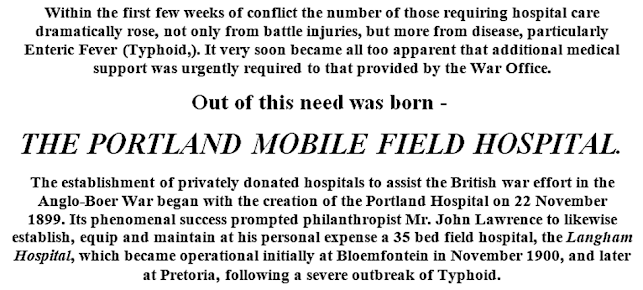












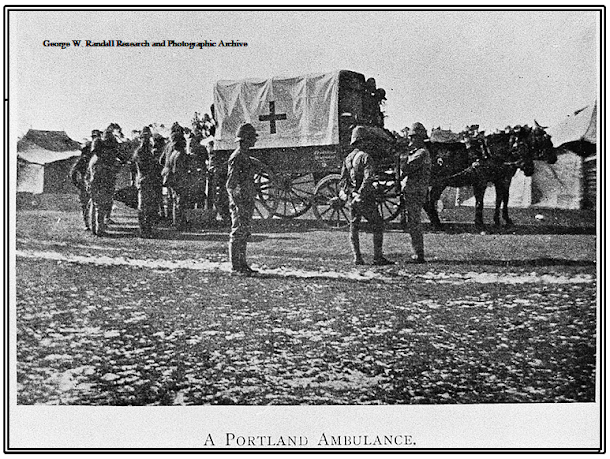



























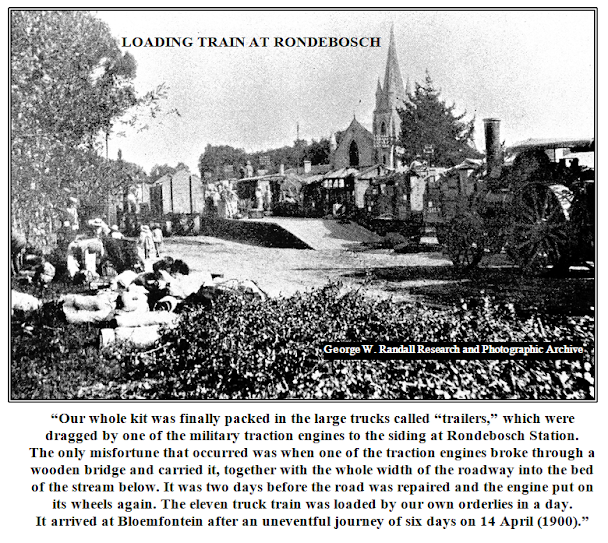









































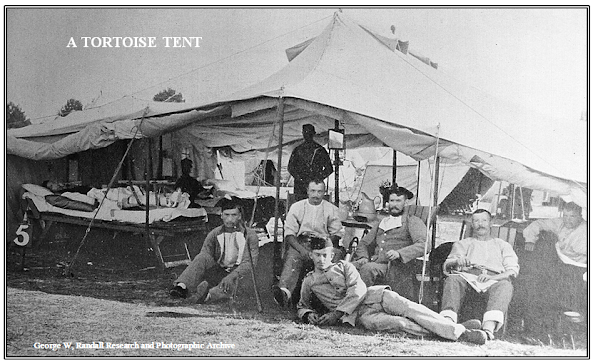












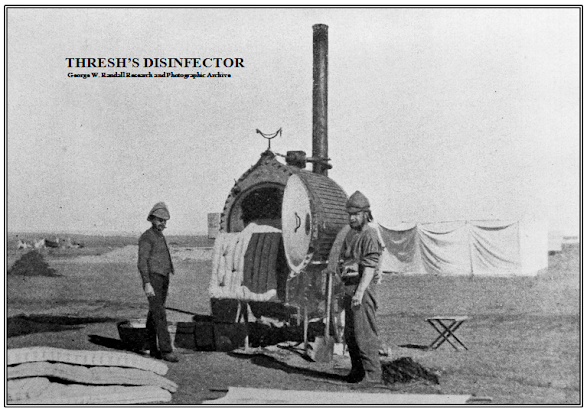





































No comments:
Post a Comment